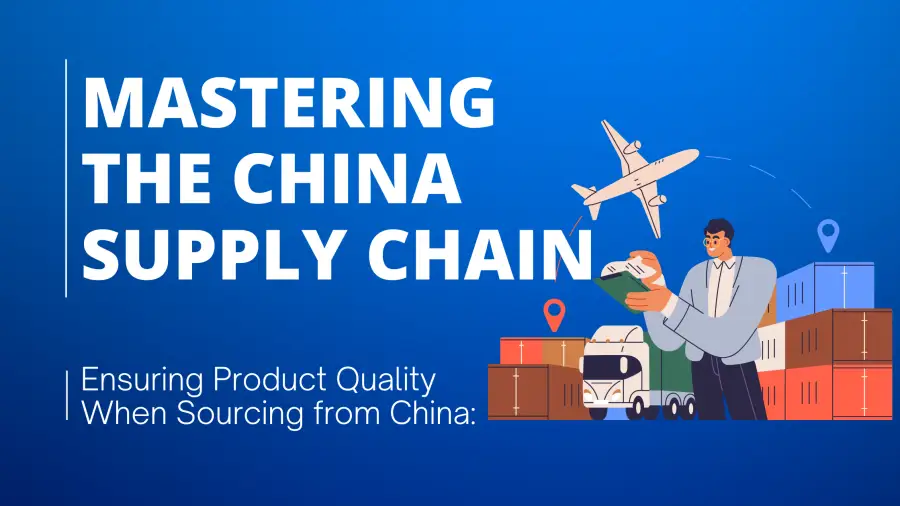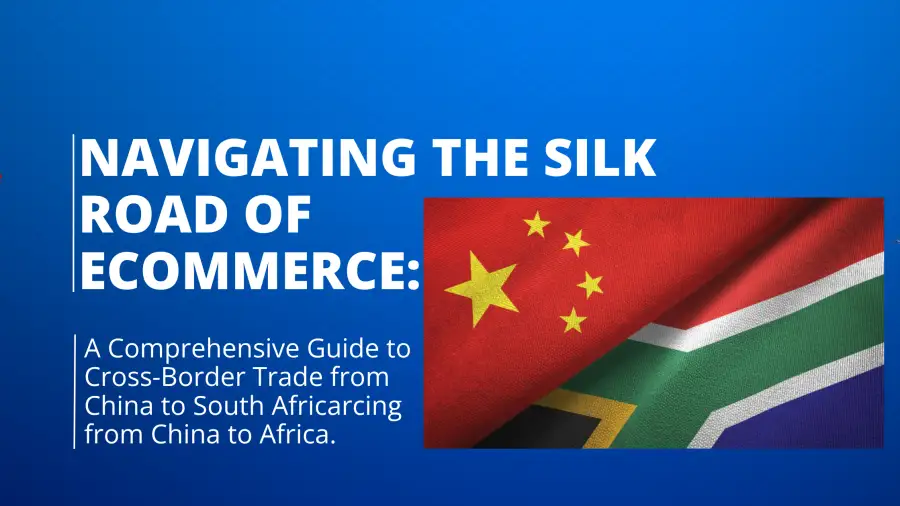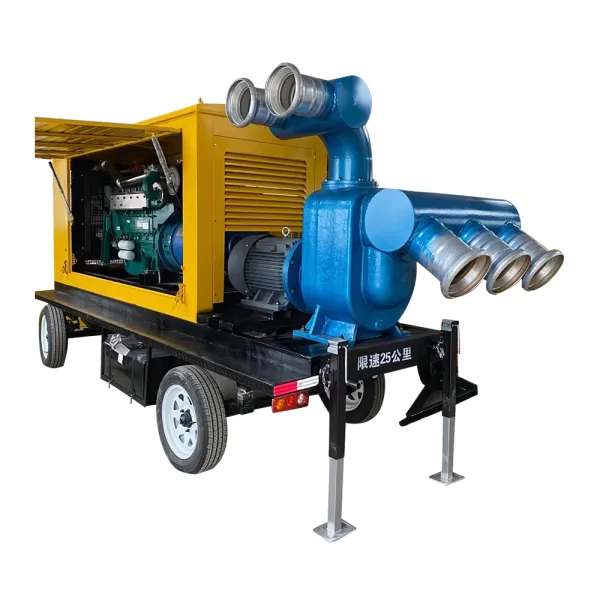B21, China Town Mall, Midrand

- Products Sourcing
Navigating the Complexities of China's Supply Chain
-
Eman Libatu
-
01 Jul 2024
-
82 Comment
In today’s global market, understanding and effectively navigating China’s supply chain can make or break your business. With its vast network of manufacturers, suppliers, and logistics providers, China remains the world's factory. But with great opportunities come equally significant challenges. From language barriers to cultural differences, and from quality control to regulatory issues, the path to seamless sourcing can be fraught with difficulties. This article will guide you through the intricacies of China's supply chain, helping you turn potential pitfalls into pathways to success.
Why China’s Supply Chain is Crucial
The Global Manufacturing Hub
China's reputation as the "world's factory" isn't just a catchy nickname. The country’s manufacturing capabilities span across various industries, including electronics, textiles, automotive, and more. With its vast labor force and advanced infrastructure, China can produce high-quality goods at competitive prices. This cost advantage is a significant draw for companies worldwide.
Innovation and Technology
China is not only about low-cost manufacturing; it's also a hub for innovation. Cities like Shenzhen are bustling with tech startups and innovative companies pushing the boundaries of technology. This makes China an attractive destination for sourcing not just traditional goods but also cutting-edge products.
The Complexities of China’s Supply Chain
Language and Cultural Barriers
Navigating the complexities of China’s supply chain involves more than just understanding the logistics. Language barriers and cultural differences can lead to misunderstandings, delays, and errors. For instance, the concept of "face" in Chinese culture emphasizes respect and reputation, which can influence negotiations and business relationships.
Quality Control
Ensuring product quality is a significant challenge when dealing with suppliers thousands of miles away. Miscommunication about specifications, standards, and expectations can lead to subpar products. Implementing rigorous quality control processes and regular inspections is essential to mitigate these risks.
Regulatory Hurdles
China's regulatory environment can be tricky to navigate. Import and export regulations, customs duties, and compliance standards can vary, and staying updated on these changes is crucial. Failure to comply can result in hefty fines or shipment delays, impacting your supply chain efficiency.
Strategies for Effective Supply Chain Management
Building Strong Relationships
Developing strong relationships with your suppliers is key to a successful supply chain. Frequent communication, mutual respect, and understanding can go a long way in ensuring smooth operations. Consider visiting your suppliers in China to build rapport and gain a better understanding of their capabilities and challenges.
Leveraging Technology
Technology can play a pivotal role in managing your supply chain. Utilizing supply chain management software, communication tools, and quality control systems can streamline processes and reduce the risk of errors. Real-time tracking and data analytics can provide valuable insights into your supply chain’s performance.
Diversifying Suppliers
Relying on a single supplier can be risky. Diversifying your supplier base can provide flexibility and reduce the impact of disruptions. It's essential to have contingency plans in place and maintain relationships with multiple suppliers to ensure continuity in case of unforeseen events.
Practical Tips for Sourcing from China
Do Your Homework
Research is crucial before engaging with Chinese suppliers. Understand the market, the players, and the pricing structures. Websites like Alibaba can provide a starting point, but visiting trade shows and fairs in China can offer deeper insights and firsthand experience.
Negotiate Wisely
Negotiation is an art in China. It's important to be clear about your expectations, but also flexible and open to compromise. Building trust and showing respect can go a long way in securing favorable terms. Remember, it's not just about getting the lowest price but ensuring quality and reliability.
Ensure Clear Communication
Clear and concise communication is vital. Use simple language and confirm understanding frequently. Providing detailed specifications, samples, and prototypes can help avoid misunderstandings. It's also beneficial to have bilingual staff or professional translators to bridge the language gap.
Common Mistakes to Avoid
- Skipping Due Diligence: Always vet your suppliers thoroughly. Check their credentials, visit their facilities, and ask for references.
- Ignoring Cultural Nuances: Understanding and respecting cultural differences can significantly impact your business relationships.
- Overlooking Logistics: Plan your logistics carefully, considering factors like lead times, shipping routes, and customs procedures.
Afrimart.co.za assists clients in navigating the complexities of China's supply chain by offering a range of services designed to mitigate common challenges. These services include:
- Supplier Vetting and Due Diligence: Afrimart.co.za conducts thorough background checks and inspections to ensure that clients engage with reputable and reliable suppliers.
- Quality Control: They implement stringent quality control measures, including regular inspections and audits, to ensure products meet clients' specifications and standards.
- Regulatory Compliance: Afrimart.co.za helps clients stay updated with the latest import and export regulations, customs duties, and compliance standards, minimizing the risk of delays and penalties.
- Logistics Management: They offer comprehensive logistics solutions, managing shipping routes, lead times, and customs procedures to ensure timely delivery.
Leave Comment
Your email address will not be published. Required fields are marked











Comments
30 Jan, 2022
Glenn Greer
"This proposal is a win-win situation which will cause a stellar paradigm shift, and produce a multi-fold increase in deliverables a better understanding"